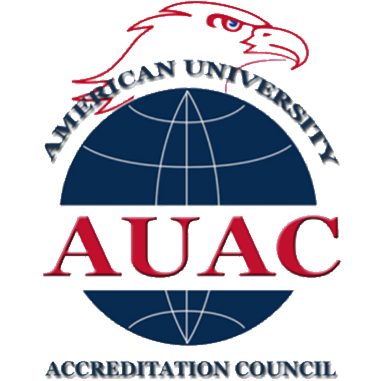Higher education in America is unique in the world because of its reliance on accreditation to ensure quality and to foster a culture of continued improvement. In the United States, accreditation is a non-governmental, peer-review process that assures the quality of the postsecondary education students receive. Educational institutions or programs volunteer to undergo this review periodically to determine if certain criteria are being met.
Accreditation assures that a program has met quality standards set by the profession. To employers, graduate schools, and licensure, certification, and registration boards, graduation from an accredited program signifies adequate preparation for entry into the profession. In fact, many of these groups require graduation from an accredited program as a minimum qualification.
Accreditation is valuable to you and your constituents:
- Accreditation provides you with a structured mechanism to assess, evaluate, and improve the quality of your program.
- Accreditation helps students and their parents choose quality college programs.
- Accreditation enables employers to recruit graduates they know are well-prepared.
- Accreditation is used by registration, licensure, and certification boards to screen applicants.
AUAC accreditation is assurance that a college or university program meets the quality standards established by the profession for which it prepares its students. For example, an accredited engineering program must meet the quality standards set by the engineering profession. An accredited computer science program must meet the quality standards set by the computing profession.
The quality standards programs must meet to be AUAC-accredited are set by the AUAC professions themselves. This is made possible by the collaborative efforts of many different professional and educational societies. These societies and their members work together through AUAC to develop the standards, and they provide the professionals who evaluate the programs to make sure they meet those standards.
- Accreditation helps students and their parents choose quality college programs.
- Accreditation enables employers to recruit graduates they know are well-prepared.
- Accreditation is used by registration, licensure, and certification boards to screen applicants.
- Accreditation gives colleges and universities a structured mechanism to assess, evaluate, and improve the quality of their programs.
We investigate schools to substantiate that they are operating legally and run legitimately. Our team will conduct visitations to observe the school in action and to study amounts of information that the school must prepare, relating to it’s legal and academic structure. If a school does not meet up to our standards, we can advise them on how to improve the situation, so that they do qualify for accreditation.
- Standards: The accrediting agency, in collaboration with educational institutions, licensing agencies, practitioners, and the public establishes standards.
- Self-study: The institution or program seeking accreditation prepares an in-depth self-evaluation study that measures its performance against the standards established by the accrediting agency.
- On-site Evaluation: A team selected by the accrediting agency visits the institution or program to determine first-hand if the applicant meets the established standards.
- Publication: Upon being satisfied that the applicant meets its standards, the accrediting agency grants accreditation or preaccreditation status and lists the institution or program in an official publication with other similarly accredited or preaccredited institutions or programs. Many accrediting agencies include their lists on their web sites.
- Monitoring: The accrediting agency monitors each accredited institution or program throughout the period of accreditation granted to verify that it continues to meet the agencyˇs standards.
- Reevaluation: The accrediting agency periodically reevaluates each institution or program that it lists to ascertain whether continuation of its accredited or preaccredited status is warranted.
